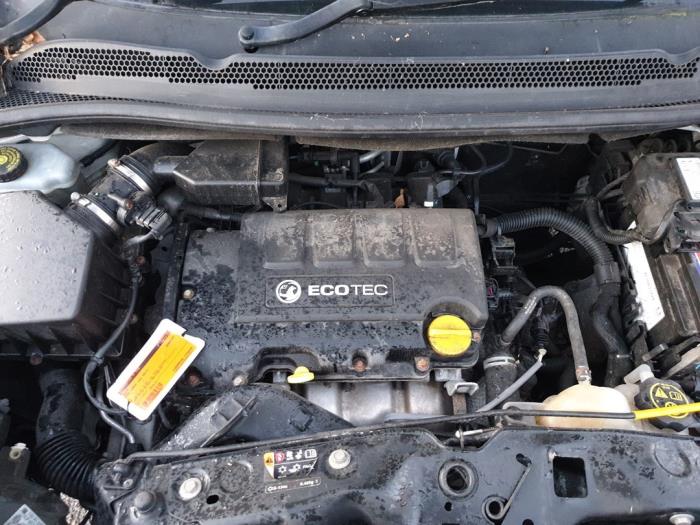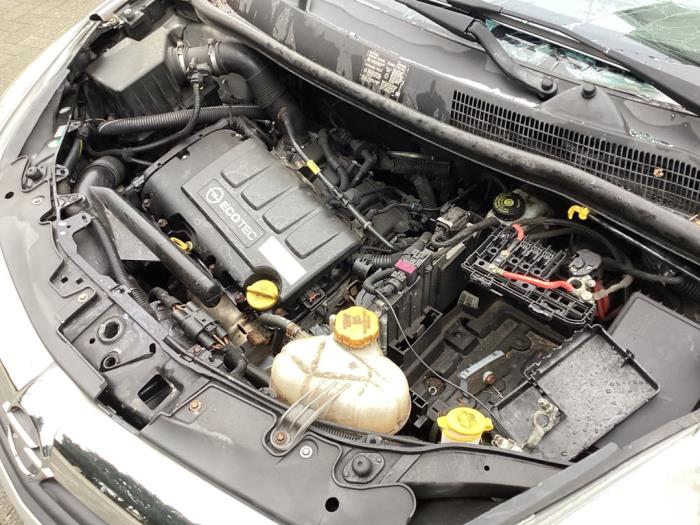Discover Competitive Opel Corsa 1.4 Engine Price Options at Auto Components Market
Discover Competitive Opel Corsa 1.4 Engine Price Options at Auto Components Market
Blog Article
Engine Buying Professional Tips on Picking the Right Engine for Your Particular Needs
Choosing the appropriate engine for your certain demands entails an intricate interplay of elements that go past mere horse power numbers. By delving into the details of power versus efficiency, evaluating gas rankings, and budgeting for long-term prices, one can absolutely optimize their engine choice.
Power Vs. Efficiency: Discovering the Equilibrium
When picking an engine, it is essential to strike an equilibrium in between power and performance to satisfy your specific demands properly. Power describes the engine's capability to generate energy for propulsion, figuring out factors like acceleration, hauling ability, and overall performance - Opel Corsa 1.4 Engine Price. On the other hand, performance associates with exactly how well the engine makes use of gas to produce power, impacting variables such as fuel economic climate and ecological kindness
Attaining the appropriate equilibrium between power and effectiveness is crucial because an engine that is also powerful may eat too much fuel, bring about greater operating expense and unnecessary strain on the environment. On the other hand, an engine that prioritizes effectiveness over power might result in sluggish efficiency, particularly sought after circumstances like hauling heavy lots or driving uphill.
To make a notified choice, consider aspects such as your common driving problems, the desired use the car, and your personal preferences. By reviewing your requirements and priorities, you can choose an engine that strikes the best balance between power and efficiency, making certain optimum efficiency while lessening environmental effect and operating costs.
Understanding Engine Dimension and Type
To additionally fine-tune the option process of an engine that strikes the optimal equilibrium in between power and effectiveness, it is necessary to dive right into the intricacies of recognizing engine size and type. Engine dimension refers to the complete volume of air and gas that can be pressed via the engine cyndrical tubes.
Additionally, engine type plays an important duty in determining the performance attributes of an engine. Common engine types consist of inline engines, V engines, and rotary engines, each with its one-of-a-kind benefits and disadvantages. The engine kind influences elements such as the engine's dimension, weight distribution, and power distribution. Recognizing the interplay in between engine dimension and kind is important in choosing an engine that straightens with your details requirements and top priorities, whether it be power, efficiency, or an equilibrium of both.

Consider Your Lorry's Demands
Considering your vehicle's demands is a fundamental action in the engine choice procedure to make sure optimum performance and functionality. It is essential to evaluate factors such as the intended use the car, its weight, hauling capacity, and fuel effectiveness demands. If you are looking for an engine for a durable truck that will be made use of for towing, you will need an effective engine with high torque capacities. On the various other hand, if you are selecting an engine for a small car primarily used for city commuting, fuel performance may be an extra essential element to take into consideration.
In addition, Full Article the surface on which the automobile will mainly run ought to influence your engine selection. If you often drive in mountainous or hilly locations, a robust engine with excellent climbing up power will be necessary. Alternatively, for flat terrains, an extra fuel-efficient engine might be sufficient. By lining up the engine specifications with your automobile's demands, you can guarantee that your car operates effectively and satisfies your efficiency expectations.
Assessing Gas Effectiveness Ratings
Evaluating gas performance scores is a critical facet of selecting the best engine for your car, making certain expense financial savings and environmental sustainability. Gas performance ratings, usually determined in miles per gallon (MPG) for gas engines or kilowatt-hours per 100 miles (kWh/100 miles) for electrical engines, indicate how much a vehicle can take a trip on a specific quantity of gas or power. Greater MPG or reduced kWh/100 miles worths represent more reliable engines, converting to decreased gas expenses and reduced carbon discharges.
When assessing gas efficiency rankings, consider your driving behaviors and demands. If you commute cross countries daily, a very fuel-efficient engine can lead to substantial financial savings gradually. In addition, compare different engine options within the exact same car class to recognize one of the most affordable selection. Variables such as engine dimension, weight, aerodynamics, and crossbreed or electrical abilities can all affect gas performance.
Budgeting for Long-Term Costs
Tactically intending for lasting expenditures is important when selecting an engine, making sure financial sustainability over the vehicle's life expectancy. While the preliminary acquisition rate of an engine is a considerable variable, it is crucial to consider the long-term expenses connected with maintenance, repair services, and fuel intake. Selecting a much more fuel-efficient engine may have a greater in advance cost but can cause significant savings gradually. Routine maintenance, such as oil changes, filter replacements, and tune-ups, is crucial to maintain the engine running efficiently and successfully, minimizing the risk of costly repairs down the line.
In addition, looking into the schedule and price of replacement components for the selected engine is essential in budget planning. Engines with budget friendly and conveniently offered parts can substantially influence lasting maintenance expenditures. Additionally, considering the engine's durability and expected life-span can aid avoid unanticipated replacement prices in the future. By meticulously budgeting for these long-lasting expenditures and factoring them into the decision-making procedure, people can choose an engine that not only try this site satisfies their immediate needs however also continues to be economical throughout its life-span.
Conclusion
To conclude, picking the best engine for your certain demands calls for stabilizing power and efficiency, comprehending engine dimension and kind, considering your lorry's demands, reviewing fuel performance scores, and budgeting for long-lasting prices. By meticulously considering these variables, you can make sure read this that you choose an engine that meets your needs and offers optimal efficiency for your automobile.
To even more fine-tune the option process of an engine that strikes the optimum equilibrium in between power and efficiency, it is crucial to delve right into the complexities of understanding engine size and type. Engine dimension refers to the complete quantity of air and fuel that can be pressed with the engine cyndrical tubes. Common engine types include inline engines, V engines, and rotary engines, each with its distinct advantages and disadvantages. Comprehending the interaction in between engine size and type is crucial in choosing an engine that aligns with your specific needs and top priorities, whether it be power, efficiency, or a balance of both.

Report this page